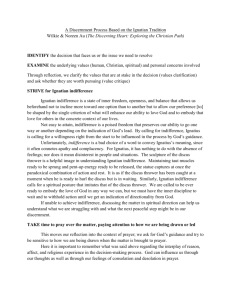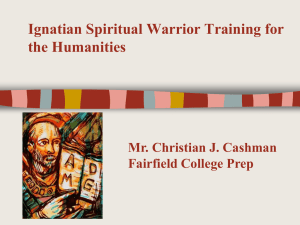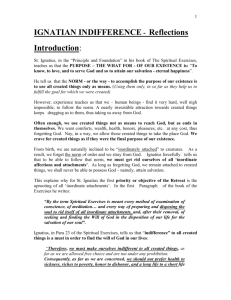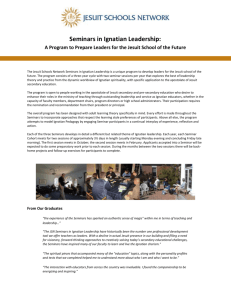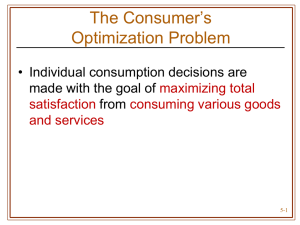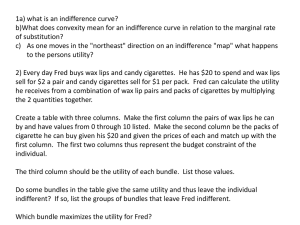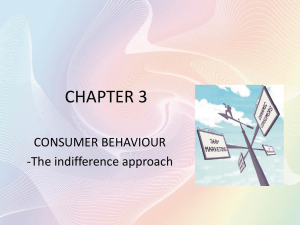Kobyashi Maru - The No Win Scenario and Ignatian Indifference
advertisement
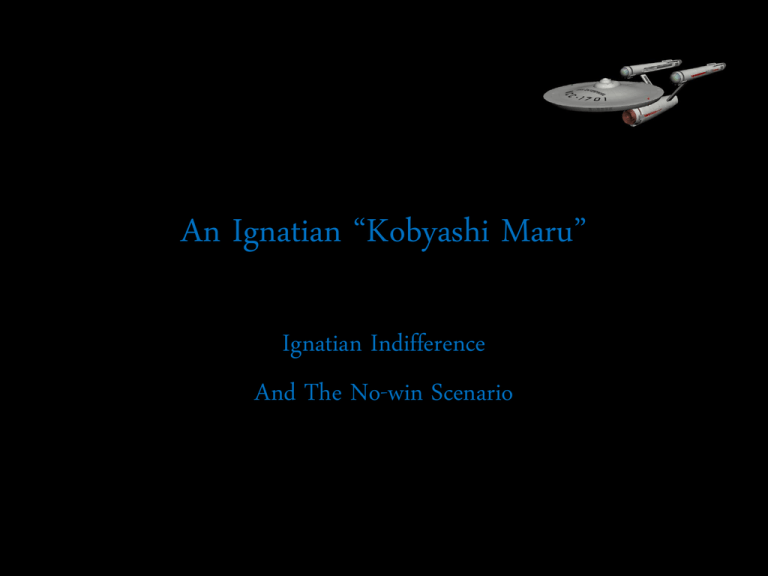
An Ignatian “Kobyashi Maru” Ignatian Indifference And The No-win Scenario This Presentation . . . • Is meant to spark a conversation. • Is meant to raise questions for personal reflection. • Is meant to be informative on a topic that is often misunderstood. • Is meant to provide resources for those who want to explore further. • Really has nothing to do with Star Trek. Questions to Consider • What do we mean by “Ignatian indifference?” • What do we mean by “Ignatian discernment?” • How can our decision making be guided by the Ignatian principle of indifference? • When the decision maker is faced with what is perceived to be a “no-win” scenario, can there be indifference? Kobyashi Maru ? • Kobyashi Maru test • Kobyashi Maru Debrief A FEW DEFINITIONS . . . Ignatian Indifference • Indifference in the Ignatian sense is not apathy, or “not caring” • For St. Ignatius, indifference meant freedom – Approach the world with fresh eyes – Take a step back and detach oneself from bias – Ignatian indifference is filled with passion • A Passion to discern God’s will Ignatian Discernment • *The art of appreciating the gifts that God has given us. • Discovering how we might best respond to that love in daily life. • A useful process for decision making, that involves reflection and prayer. * Londsdale, David (2000) “Eyes to See, Ears to Hear” P. 91, New York, Orbis Books A step by step decision making process* • • • • • • • • Identify the decision or issue to be resolved Examine the values and concerns involved Exercise Indifference Take time to pray and listen to where God is calling you Make the decision Discuss the decision with someone you trust Dialogue with those who will be affected by the decision Live out the decision with courage, hope and trust *Au, Wilke and Cannon Au, Noreen (2006) “The Discerning Heart: Exploring the Christian Path,” pp. 60-65, Paulist Press A presumption . . . • Ignatian Discernment presumes a choice for a “good.” • What happens if we cannot see a “good” outcome in any of the choices before us? thus. . . Does the “No Win” Scenario’’ really exist? Small Group “Scenario” Discussion • Divide into small groups • Examine the scenarios distributed • How would you approach the problem using Ignatian Indifference and Discernment? • Did you discern a positive outcome to the scenario you chose? Neither one believed in a “no-win” Scenario The Myth of the No-Win • If there is true discernment that includes prayer and indifference you probably won’t have a “no-win” situation – Perhaps there is a need to redefine the problem or the need to redefine what a “win” is in the scenario. • Choices made in good faith and prayer serve God’s will. – That is the definition of a “win.” A final thought “God’s will is that we should exercise our freedom responsibly and well by choosing what honestly seems the best course of action in a given set of circumstances, using all the relevant aids we have been given for that purpose. There is a sense in which we create, in terms of concrete action in given circumstances, the will of God in this exercise of freedom.” -David Lonsdale A Few Sources on Indifference and Discernment • Au, Wilke and Cannon Au, Noreen (2006) “The Discerning Heart: Exploring the Christian Path,” New York, Paulist Press • Kreeft, Peter “Discernment” www.peterkreeft.com/topics/discernment.htm • Londsdale, David (2000) “Eyes to See, Ears to Hear” New York, Orbis Books • Traub, S.J., George (2008) “An Ignatian Spirituality Reader” Chicago, Loyola Press • Thibodeaux, S.J., Mark (2010) “God’s Voice Within” Chicago, Loyola Press
